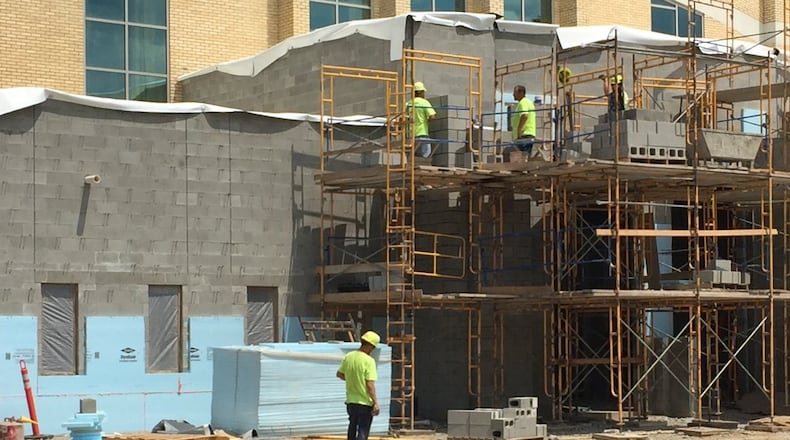Those losses were based on estimates by Titterington and city Auditor John Frigge from reductions in income tax receipts of $2.5 million, a 40 percent reduction in local government funds from the state for $220,000 and 45 percent loss in gas state funds, or $364,500. The potential losses in the gas tax and local government funds were based on state estimates.
The reductions take effect immediately.
The reductions leave a gap of $829,000 in reaching the $3.1 million goal. Titterington said he and Frigge think that gap can be filled by prudent rest of the year spending overall or from general fund reserves. The city’s general fund reserves were at $25.4 million to start the year and were expected to decline to $20.6 million at year’s end.
Oda said the city is doing its best to adjust to an ever changing environment caused by COVID-19.
“It is a fluid situation,” she said. “Every day you come in saying, ‘What’s the latest?’”
Last week, Titterington said department heads were asked to begin identifying possible areas of reductions. Among conditions they were asked to follow were to maintain safety, streets, refuse and other essential services; allow projects and programs underway to continue; and cut all travel and training not related to maintaining certifications.
Among reductions identified:
- An anticipated vacancy of a service director’ office clerk position would not be filled
- Two fire department apprentices will be offered voluntary positions this year and paid positions starting in 2021
- Cutback in temporary staffing hours for mowing and maintenance in park and cemetery departments
- The street/refuse foreman rescinded retirement to save $66,000 in payouts for now
- The road repair program reduced $275,000 from $1 million to $725,000
- Replacing a side roof at Hobart Arena delayed until 2021
- The street painting program will be deferred until at least 2021 with concerns addressed on case by case basis
- Two successful grant applications will allow for taking out $235,000 set aside for signal timing and stoplight projects.
“While there is no scientific data to support Governor DeWine’s assertions that his unilateral restrictions related to the COVID-19 scare have affected its spread, there is much data to support the fact that his actions have had an enormous, if not devastating impact on the economies of Ohio and, specifically, the city of Troy,” Titterington said in the memo.
He said he and the mayor do not disagree with the governor but would like to see some scientific data to support the direction taken. “We have complied and will continue to comply with the orders in place,” Titterington said.
About the Author
